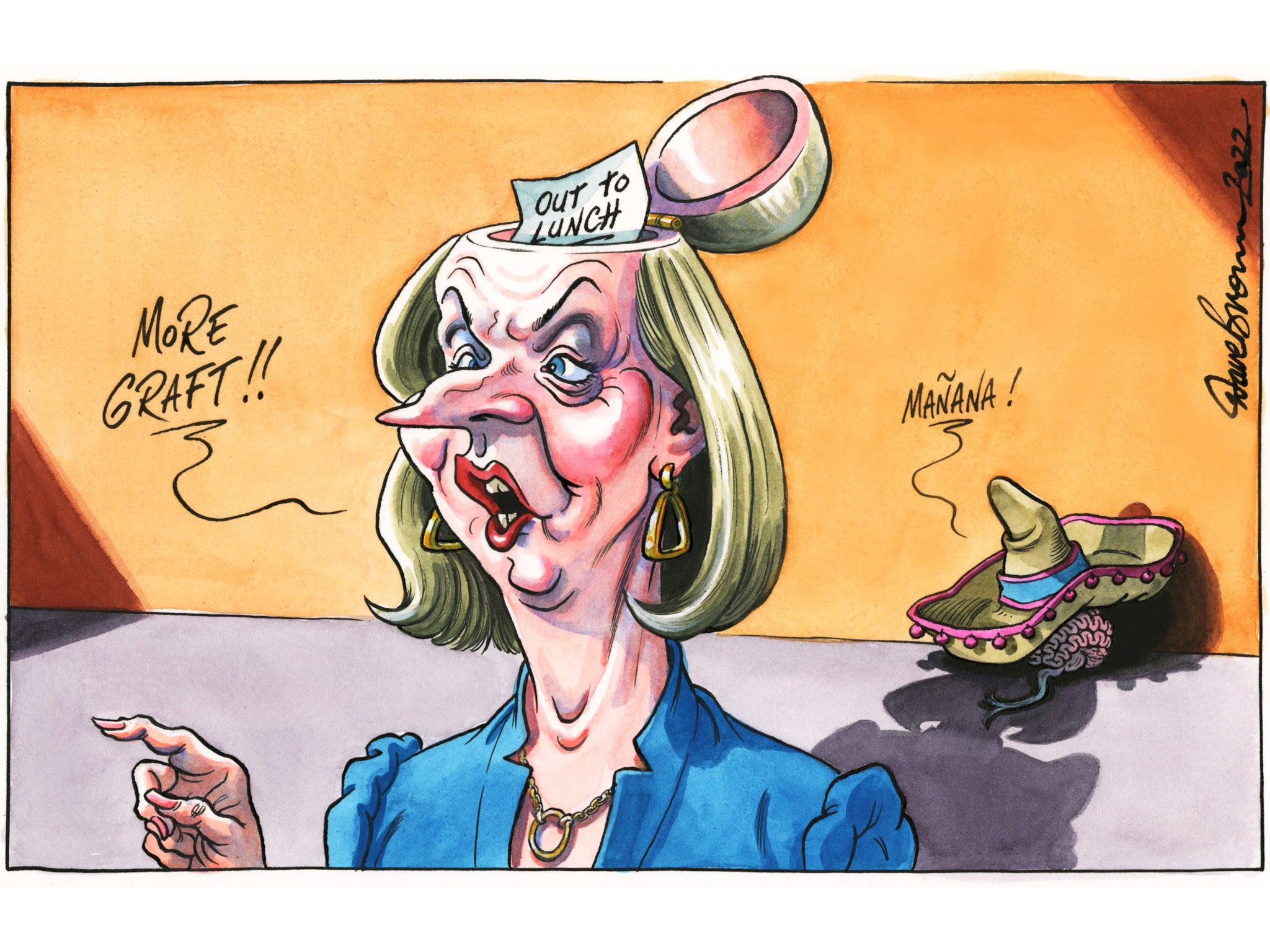Boris Johnson has gone on “shore leave”, said Stuart Rose, the chair of Asda and Conservative peer. It is an antique phrase, but accurate. As the ship of state sails towards a recession, the captain is absent, sulking over the below-decks mutiny that put a time limit on his command.
The prime minister’s behaviour as he leaves office seems almost designed to confirm the criticisms that led to his downfall: that he fails to take his responsibilities seriously or to believe that the obligations of high office apply to him.
Nor has either of the candidates to succeed him risen to the level of events. As the Conservative leadership election has progressed, the crises gripping the nation have deepened, but Ms Truss and Mr Sunak have focused intently on the ideological obsessions of party members. The campaign started off with a debate about tax cuts that seemed increasingly detached from reality, before being dragged, lagging behind events, on to the energy price crisis – on which the frontrunner’s policy remains hopelessly ill-defined.
The latest inflation figures reveal an empty space where the government ought to be, and further expose how out of touch the candidates to succeed Mr Johnson seem to be.
The headline rate of inflation is now running at more than 10 per cent, and the rate is higher for households on lower incomes. That is because they spend a bigger share of their income on food and energy than the better-off, and it means that people are at risk of destitution – a word that Mr Sunak to his credit has at least used, even if he has not yet proposed the kind of urgent action that is required.
The huge rise in energy prices is only part of a bigger cost of living crisis. Even if the zombie government or the aspirant prime ministers had a policy on gas and electricity prices that was adequate, it would not protect people from the effects of inflation on the other essentials of life. The uprating of pensions and benefits in April was lower than was needed then, and prices have run away further since.
The reports of foodbanks overwhelmed by demand are another measure of the growing storm. If we had a government, it would have recalled parliament by now and the chancellor would have announced a new package of emergency help for vulnerable people, and to bear down on inflation.
To keep up to speed with all the latest opinions and comment, sign up to our free weekly Voices Dispatches newsletter by clicking here
And yet inflation is only one aspect of the multi-faceted crisis that even senior Conservatives are calling “broken Britain”, as reported by Andrew Grice. The state of the National Health Service is now a cause for alarm, with daily stories of long waits for ambulances and understaffed wards. Yet the identity of the secretary of state for health and social care is an obscure pub-quiz question – it is in fact Steve Barclay, a competent and steady politician, but one who does not have the weight of prime ministerial authority behind him to drive an urgent response through the system.
This summer has turned out to be the worst time to have a vacuum at the top of government, with the twin crises of the economy and the NHS backlog requiring rigorous attention and urgent action.
Both the candidates to become prime minister have pledged to hit the ground running, whichever of them takes office on 6 September. They had better mean it.




Join our commenting forum
Join thought-provoking conversations, follow other Independent readers and see their replies
0Comments